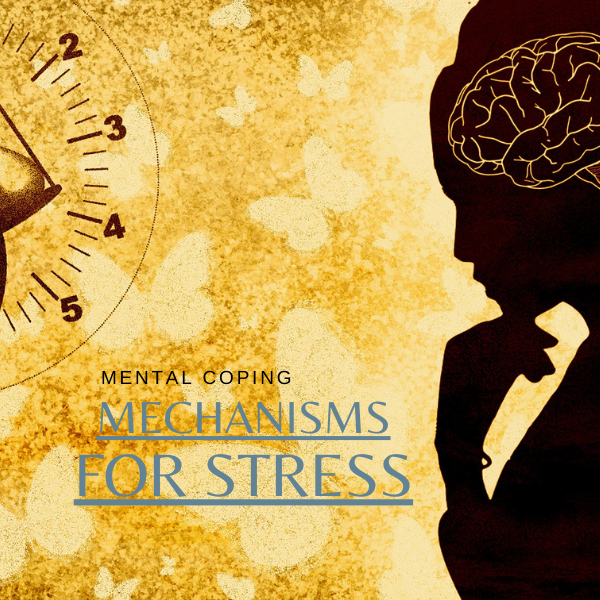How to Overcome Chronic Stress: Proven Strategies for Long-Term Relief and Well-Being
Chronic stress is an ongoing challenge that affects millions of people worldwide. It impacts both physical and mental health, contributing to a variety of health issues, from anxiety and depression to cardiovascular diseases.
Fortunately, there are proven strategies for managing and overcoming chronic stress, fostering long-term relief and well-being. In this blog post, we will explore practical, science-backed techniques to help you regain control over stress and improve your overall quality of life.
Understanding Chronic Stress: The Root Cause
Chronic stress occurs when stressors overwhelm your ability to cope. Unlike short-term stress, which can be a motivating factor, chronic stress lingers, taking a toll on your body and mind. Identifying the root causes of chronic stress is essential to overcoming it.
These may include work pressures, personal life challenges, financial difficulties, or even health-related concerns.
The Impact of Chronic Stress on Your Body and Mind
When stress becomes chronic, it triggers a cascade of biological responses. Over time, this persistent stress can negatively impact several systems in the body:
- Mental Health: Chronic stress is closely linked to anxiety, depression, and mood disorders. It can impair cognitive function, leading to memory problems and difficulty concentrating.
- Physical Health: Prolonged stress can contribute to high blood pressure, heart disease, obesity, and weakened immune function. It also disrupts sleep patterns, leading to insomnia and fatigue.
Understanding these impacts underscores the importance of finding ways to reduce and manage stress effectively.
Proven Strategies for Overcoming Chronic Stress
1. Practice Mindfulness and Meditation
One of the most effective ways to reduce chronic stress is through mindfulness and meditation. These practices help you focus on the present moment, reducing negative thoughts and promoting relaxation.
- Mindfulness: Engaging in mindfulness exercises, such as mindful breathing or body scanning, helps you stay grounded and aware of your thoughts and emotions. This awareness allows you to respond to stressors calmly rather than reacting impulsively.
- Meditation: Daily meditation, even for just 10 minutes, can reduce cortisol levels (the stress hormone) and improve overall well-being. Techniques like guided meditation, transcendental meditation, and progressive muscle relaxation can promote deep relaxation.
2. Exercise Regularly
Physical activity is one of the best ways to combat stress. Exercise releases endorphins, which are natural mood boosters. Whether it’s yoga, running, swimming, or a brisk walk, regular exercise can:
- Improve Mood: Physical activity helps to reduce symptoms of depression and anxiety by increasing the production of serotonin.
- Enhance Sleep Quality: Regular exercise can regulate sleep patterns, helping you rest more soundly.
- Boost Energy Levels: While it may seem counterintuitive, exercising helps combat fatigue by improving circulation and oxygenating your body.
3. Improve Your Sleep Hygiene
Chronic stress can disrupt your sleep, and poor sleep can, in turn, worsen stress. To break this cycle, prioritize healthy sleep habits:
- Establish a Routine: Go to bed and wake up at the same time every day to regulate your internal clock.
- Create a Relaxing Environment: Make sure your bedroom is conducive to sleep. Keep the room dark, quiet, and at a comfortable temperature.
- Limit Screen Time: Avoid using electronic devices at least 30 minutes before bed, as blue light can interfere with your sleep cycle.
4. Build a Strong Support Network
Having a solid support system can alleviate stress by providing emotional support and practical assistance. Reach out to family, friends, or a therapist when you’re feeling overwhelmed. Talking about your stressors with a trusted individual can help you gain perspective and find solutions.
5. Practice Time Management and Set Boundaries
Chronic stress often arises from feeling overwhelmed by too many responsibilities. To manage stress effectively, learn to prioritize tasks and set boundaries:
- Time Management: Break down large tasks into smaller, more manageable steps. Use tools like to-do lists or productivity apps to stay on track.
- Set Boundaries: Learn to say no when you’re feeling stretched too thin. Prioritize self-care and avoid taking on unnecessary commitments.
6. Adopt a Healthy Diet
What you eat can significantly impact your stress levels. A balanced diet with plenty of fruits, vegetables, whole grains, and lean proteins can help keep your energy levels stable and your stress in check. Avoid excessive caffeine, alcohol, and sugar, as they can exacerbate stress and contribute to mood swings.
🫳🏻 Take Control of Your Stress Today
Chronic stress can have a serious impact on your well-being, but by implementing these proven strategies, you can take control of your stress and promote long-term relief.
Whether through mindfulness practices, exercise, sleep improvement, or seeking professional support, there are actionable steps you can take to improve your quality of life.
Are you ready to reduce your stress and boost your website’s performance? Start implementing these strategies today and enjoy a more balanced, successful life and business!
If you’re feeling overwhelmed by stress, take the first step toward relief by incorporating these strategies into your daily routine.
Subscribe to our newsletter for more tips on stress management and best practices for 2025. 👇🏼



